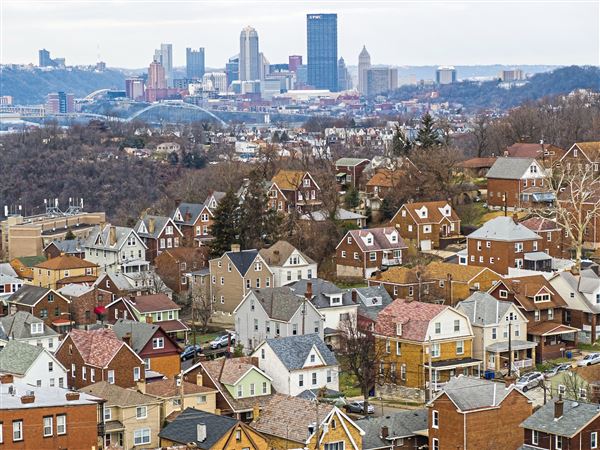A proposed extension of the Mon-Fayette Expressway from Jefferson Hills to the Parkway East in Monroeville, all but pronounced dead six years ago, is showing new signs of life.
The Pennsylvania Turnpike Commission signaled this week that it is reviving the project, without an expensive and controversial leg that would have stretched from East Pittsburgh to Bates Street in Oakland.
The commission on Tuesday approved advertising for environmental services to continue design of the highway. Commission Chairman Sean Logan told a state Senate committee that the project, suspended in 2009 because of a lack of funding, was being restarted.
The revised project would be a 14-mile toll highway extending from the current northern terminus of the Mon-Fayette Expressway at Route 51 in Jefferson Hills to the Parkway East near Thompson Run Road in Monroeville. It would pass through West Mifflin, Dravosburg, Duquesne, North Versailles, East Pittsburgh, Turtle Creek and Wilkins.
The leg connecting to Oakland was dropped “because it required many residential and business displacements, had numerous environmental impacts and was unaffordable given available funding,” Mr. Logan said in testimony before the Senate Transportation Committee in Harrisburg.
He said “significant cost reduction ideas are being incorporated into the amended design,” including a narrower median, realignment of a bridge over the Monongahela River at Duquesne and a cashless all-electronic tolling system. The estimated cost of the revised project is $1.7 billion, he said.
No construction timetable has been established, turnpike spokesman Carl DeFebo said.
A longtime champion of the project, Joseph Kirk, executive director of the Mon Valley Progress Council, hailed the decision to revive it, saying the highway has long been needed to help revitalize a region devastated by the collapse of the steel and related industries in the 1980s.
It would open more than 1,000 acres of former industrial sites to development and promote revitalization of towns that still haven’t recovered from the loss of more than 150,000 jobs, he said. “We certainly are heartened by any efforts to expedite advancement of the project.”
“We’re clearly disappointed,” said George Jugovic Jr., chief counsel for PennFuture, a citizens group that has opposed the expressway extension. “There continues to be misaligned priorities. They’re going to spend $2 billion on more miles of highway while we don’t have enough money to fix the roads and bridges we have.”
He said eliminating the leg to Oakland “makes sense, but eliminating something that’s a really bad idea doesn’t mean the rest of it is a good idea.”
Mr. Kirk has proposed extending the Port Authority’s Martin Luther King Jr. East Busway by about three miles to connect with the expressway and developing park-n-ride facilities to give drivers an alternative to sitting in Parkway East traffic.
“We’ve taken a look at that,” county Executive Rich Fitzgerald said. “An East Busway extension is something we’re very much interested in. Transit has certainly become an important component of how economic development continues to grow, especially in that corridor.”
The expressway project “is certainly something we’d like to see,” Mr. Fitzgerald said. “That would continue to spur economic development in the Mon Valley and eastern suburbs.”
Sixty continuous miles of the expressway have been completed from northern West Virginia to Jefferson Hills since ground was broken for the first section by then-Gov. Milton Shapp in 1973.
Mr. Logan also provided lawmakers with updates on two related projects, the second and third phases of the Southern Beltway, which will extend from Pittsburgh International Airport to the Mon-Fayette Expressway in Finleyville.
Construction is underway on two bridges for the second leg, which will stretch from Route 22 in Robinson, Washington County, to Interstate 79 near the Washington-Allegheny County line. The rest of the 13 miles will be bid for construction in six sections starting next year, with completion expected in 2019 or 2020, he said. Estimated cost is $670 million.
The third phase, from I-79 to the Mon-Fayette Expressway, has been on hold since an environmental impact statement was approved in 2009. Design will be restarted. No construction schedule has been established for those 13 miles, estimated to cost $816 million.
All of the toll projects got a boost from the passage of Act 89, the transportation funding measure approved by the Legislature and then-Gov. Tom Corbett in November 2013, Mr. Logan said.
“For the first time, a viable financial plan has been developed that funds these projects through completion without the need for additional funding sources,” he said.
Jon Schmitz: jschmitz@post-gazette.com, 412-263-1868 or on Twitter @pgtraffic.
First Published: June 18, 2015, 4:00 a.m.
















